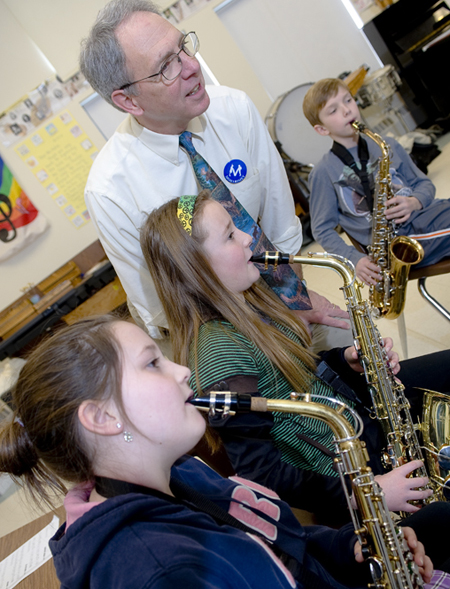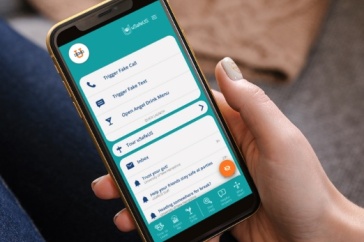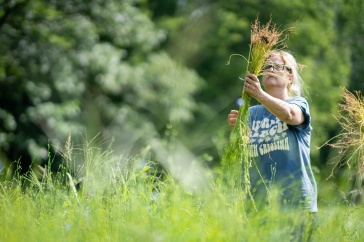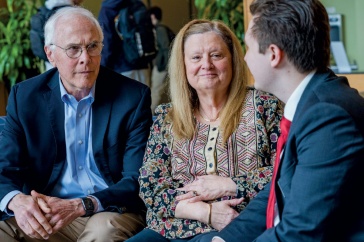|
|
Professor Mark DeTurk has been bringing UNH and Oyster River elementary school students together for 23 years. View Slideshow and Video >>
It's 9:00 on a Thursday morning, and Moharimet elementary school in Madbury is full of music. There are saxophones in the music room, yes, but there are also clarinets outside the library, flutes in the reception area, xylophones in the teachers’ lounge — even a bassoon in the principal’s office. Virtually every Moharimet fourth grader takes part in the school’s voluntary instrument lesson program, taught by UNH sophomores majoring in music education. For the fourth graders, the program is an introduction to school-based music that many of them will take into high school and beyond. For the UNH students, it’s a critical opportunity to test their mettle as teachers and set a path for their future careers.
Led by longtime music professor Mark DeTurk, the UNH music education elementary teaching program has been bringing its special brand of music lessons to the Oyster River elementary schools for 23 years. A requirement for sophomore music education majors, the course gives DeTurk’s students a better education in music teaching than any lecture-based class could hope to offer. And though the majority find the experience only cements their desire to teach music, the sophomore-year timing means that students who decide teaching isn’t for them still have plenty of time to switch tracks.
DeTurk’s class is split into two groups to teach at the two Oyster River elementary schools. A contingent of six or so heads to Mast Way, in Lee, on Tuesdays, and on Thursdays a slightly larger crew travels to Moharimet. At both schools, the program follows a similar format: the day begins with all the fourth graders gathered for 10 or 15 minutes of “aural skills” practice, singing rounds and copying note patterns under the guidance of the UNH student teachers. Students and student teachers then scatter around the building for instrument-specific instruction sessions. Flute, clarinet, saxophone, trumpet, trombone, and percussion are offered at Mast Way; because of Moharimet’s larger population, oboe, bassoon, and French horn are offered there, as well.
In general, the student teachers, who typically teach three to six students at a time, are paired with instruments they have been playing themselves for years. Occasionally, because of the class makeup or student demand, they’ll pick up a new instrument to master shortly before their younger charges do.
Rachel Ladrigan ’14 started playing flute in 6th grade, and the bassoon in high school. One of nine Moharimet student teachers this semester, she has five budding flutists in her first teaching section, and that lone bassoon player in her second. Ladrigan says the experience has only intensified her desire to teach music. “I love it,” she says, “especially that moment when you see the lightbulb go on and one of your students figures out something they had been struggling with.”
Ladrigan’s classmate Ethan Brown ’14, who teaches two sections of saxophone at Moharimet, has likewise enjoyed bringing his talents to a younger group. “I just picked up the saxophone this fall,” Brown says, “but I’ve taught private guitar lessons for years. It’s a different kind of challenge, keeping 10 or 12 kids all focused and moving forward on a piece of music.”
Moharimet principal Dennis Harrington says the enthusiasm the UNH students bring to the instrument program is matched by his elementary schoolers’. “Because of the way the program is set up, with music lessons happening all around the school, our students start thinking about it when they’re in kindergarten,” he says. “It’s almost a rite of passage for the students—they’re so excited when they reach fourth grade and it’s finally their turn.”
-
Written By:
Kristin Waterfield Duisberg | Communications and Public Affairs



















































